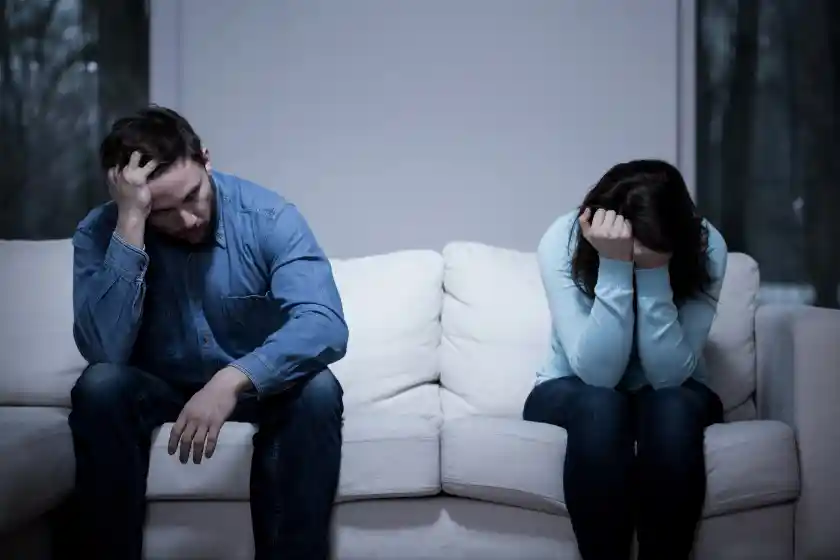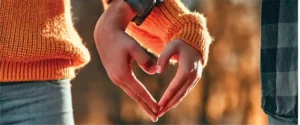
Toxic relationship? Let's talk about it
February 10, 2025
Edited by Eleonora Lanza
Psychopedagogist and Mental Coach
Valentine's Day, the feast of all lovers, and you know love is good for you. Or at least, it should, in its most beautiful form. Sometimes, however, it hurts, it empties us, it literally cages us in asphyxiating situations. It's a bit complex to explain, but let's try to do it the way we eat: in practice it can become a toxic bond that takes up more energy than it gives us. One sentence would not be enough. The wellbeing of one or both partners is constantly undermined by the dynamics of control, manipulation, excessive jealousy, possession, disrespect or in the worst cases by constant threats. And already with these factors, an alarm bell should go off. Daniel Goleman, a brilliant psychologist who, in his enlightening book "Emotional Intelligence", explains that a healthy relationship is based on three fundamental pillars: empathy, communication and reciprocity, if these are unfortunately lacking, like a litmus test, it is immediately clear that something is amiss, that there is a lack of respect for the other as an individual, creating imbalances of power, emotional dependence with cycles of inflicted pain that are perpetuated over time. In our clinical experience, we have identified some recurring alarm bells that we hope will better delineate the context you may be in:
Constant anxiety
You feel constantly on the alert, like you are walking on eggshells, you live in constant fear of making mistakes, of being judged or of losing the person you 'care about'. This constant tension is not part of a healthy relationship.
Control and Handling
Your partner tries to decide for you, restricting your freedom, with emotional blackmail or constant criticism, this behaviour instead reveals a harmful control pattern that you should avoid regardless.
Social isolation
You realise that you see fewer and fewer friends and family around you, in which case progressive isolation is one of the most common 'strategies' in toxic relationships, and here you should run like hell from your partner, not only because of the pathological nature of the relationship but above all because of the bad faith this person might have towards you.
Psychotherapist Robin Norwood, in her book 'Women Who Love Too Much', masterfully describes emotional dependence, albeit from a female perspective (yes, men also suffer from emotional dependence): a bond in which the need for the other becomes obsessive and the sufferer tends to accept unbalanced relationships, often justifying toxic behaviour. This dynamic is comparable to a true substance addiction but with the psychological variant: one remains in the relationship despite the pain, as if tied to a drug one cannot do without. The body and mind get used to the emotional ups and downs, justifying them over and over again, making it more and more difficult to break off the relationship, not to say 'impossible', because of the emotional and emotional leverage that blocks it. It is as if one literally becomes entangled. Psychiatrist Stefano Carbone also explains that toxic relationships can activate mechanisms similar to those of substance addiction. In 'positive' moments, the brain releases dopamine, the pleasure hormone, creating a sort of 'reward' that makes us stay even when the situation becomes burdensome or painful. It is a very complicated vicious circle to break and you should not blame yourself if this happens.
I would like to get out of this unhealthy situation but...
We understand you perfectly, and the fact that you recognise the situation as problematic is already a lot and is by no means trivial, it is the most important step and does you credit. Accepting that the relationship is no longer healthy (with all the emotional transport involved) is the de facto first step to initiating a radical change. Try talking about it first with someone you trust (a friend, a family member) to get an outside perspective, to get a support network. We obviously hope that this will be enough, because we hope for the best scenario, but sometimes talking to friends is not enough. It can take the support of a professional (psychologist or psychotherapist) to rebuild the self-esteem that has been destroyed and mangled over the years, and re-learn how to feel good about oneself, cognitively 'restructuring' after all the rubble and pain. Remember though, the fear of being alone is one of the main reasons why we stay in destructive relationships. As difficult as it may seem, you will never be alone, you are loved and as such you have people who love you. Start afresh from there and from them, and you will see that you will have a more immediate new beginning. You will rediscover and learn to understand that you deserve to be loved and respected as you are. Distance yourself from those who want you to be different or that you might somehow change or become what you are not, it is not healthy, move away from these people, cultivate your interests, surround yourself with kind and positive souls and work on yourself to avoid repeating the same dynamics in the future. You will succeed, we are sure of it. It requires a huge effort, but it is worth it.
Emergency Numbers
143: The Outstretched Hand (24/7)
144: Medical emergencies
0800 866 866: Domestic Violence
Support Service
You will find us always available, in our centre we offer a safe space to explore these dynamics not only with listening or psychotherapy, but also with drama therapy, relaxation groups and much more. Remember: asking for help is a sign of strength, not weakness, and you are very strong. If you have come this far, you have already taken the first step.
We leave you with a small note: the fear of loneliness can keep us tied to unhealthy relationships, but always keep in mind: you deserve a love that makes you flourish, not wither, a love that adds light to your life, not obscures it.❤️🩹
BIBLIOGRAPHY
Bowlby, J. (1972). Attachment and loss: Vol. 1. Bollati Boringhieri.
Bowlby, J. (1983). A secure foundation: Clinical applications of attachment theory. Cortina Publisher.
Carbone, S. (2019) The brain in love: The sciences of relationships and affective ties. Franco Angeli
Damasio, A. (1995) Descartes' error: Emotion, reason and the human brain. Adelphi
Fromm, E. (1994). The art of loving. Mondadori .
Goleman, D. (1997). Emotional intelligence: What it is and why it can make us happy. BUR Rizzoli
Goleman. D. (2007). Social intelligence: The new science of human relationships. Rizzoli .
Norwood, R. (1985). Women who love too much. Feltrinelli
© 2025 Psychology and Well-being Centre GmbH - All rights reserved
You might also be interested in:
The mind-body 'relationship' in love
By Dr. Valentina Lusini Psychologist in training Dear Reader, Dear Reader, As we know, love is a powerful force that profoundly influences our well-being, not only at the level of
Me Valentine's Day, and you?
By Dr Eleonora Lanza Psychopedagogist and Mental Coach Dear reader, On Valentine's Day, the feast of lovers, I would like to invite you to reflect on a force that profoundly influences the
Anxiety Disorder
By Giuseppe Calcagno Dr. specialising in Clinical Psychology Anxiety is a defence mechanism, closely linked to our self-preservation instinct, and manifests itself as intense emotional tension.


